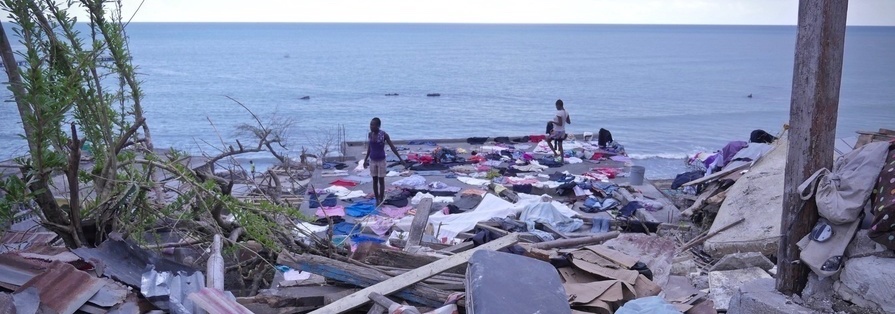
Haiti’s geography increases exposure to disasters such as tropical storms, hurricanes, and earthquakes. These disasters generate destruction of both infrastructure and agricultural areas. In addition to Haiti’s geographic characteristics, socio-political challenges have deteriorated the nation’s security and have caused both an increase in the urban population and in the irregular migration of Haitians in the region. Because of such factors, Haiti is considered the most vulnerable country in Latin America and the Caribbean, and the 18th most vulnerable country in the world (INFORM Index 2021).
On the morning of January 24, Haiti recorded two aftershocks of 5.6 and 5.4 increasing the death toll and number of those injured since the 7.2 magnitude Earthquake in August last year. Haiti is a nation deeply in need of international aid focused on sustainable recovery and disaster prevention.
IOM, together with both governmental and non-governmental partners, is committed to addressing immediate and long-term disaster and mobility-related challenges in Haiti by the root causes of irregular migration, reducing forced movement and the vulnerability of affected and at-risk population, building resilience to identified risks and mainstreaming migration in development agendas and policies.
In December 2021, IOM launched a Crisis Response Plan aiming to:
– Save lives and respond to needs through humanitarian assistance and protection
– Address the drivers and longer-term impacts of crises and displacement through investments in recovery and crisis prevention
– Strengthen preparedness and reduce disaster risk
– Contribute to an Evidence-Based and Efficient Crisis Response System
Achieving these goals and aiding the recovery of the more than 310,000 people impacted by the most recent disasters requires around USD 87 million.
USA for IOM plays a critical role in mobilizing resources from individuals and the private sector in the United States to support IOM’s work around the world, and by doing so, aids thousands of vulnerable people, like Haitians, affected by disasters. You can read the full response plan HERE:

USA for IOM is the International Organization for Migration (IOM)’s nonprofit partner in the United States. | EIN 52-1525929
1752 N St NW Suite #600
Washington, D.C. 20036
For any inquiries please email us at info@usaforiom.org
© 2024 USAforIOM